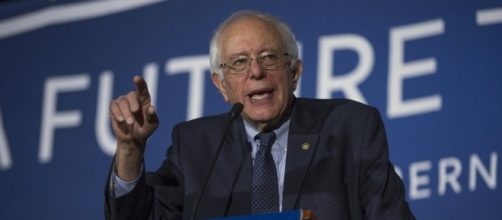Bernie Sanders has proposed a “College for All Act” in the Senate. The Independent Senator from Vermont, alongside the four Democratic co-sponsors of the bill (Elizabeth Warren, Keith Ellison and Pramila Jayapal), continue to advance Sanders' "political revolution" begun during his primary battle against Secretary Hillary Clinton. The bill, which would cost $6 billion, would grant students of families earning less than $125,000 per year free tuition at four-year public colleges.
'How will we pay for this?'
As previously stated, Sanders’ legislation is estimated to cost $6 billion according to his own personal website.
I can already hear the questions from the "fiscal conservatives" on the Right; "Senator Sanders, this is noble and moral legislation, but it is simply impossible to fund." Lucky enough for the doubters, Sanders has provided an explanation for how he would pay for such a program -- a tax on Wall Street speculation, a policy supported by a number of leading economists, on his website. This concept is not completely foreign to American politics, as other legislation such as the "Inclusive Prosperity Act" introduced by Rep. Keith Ellison aimed to tax the sale of stocks at 0.5%, bonds at 0.1%, and derivatives and other investments at 0.005%.
'College for All' in the age of Trump
Sanders urged young Americans to rally around his legislation, saying “Our job is to bring forward a progressive agenda… Our job now is to go out in every state in this country...
We can win this fight when millions of Americans stand up and demand this legislation.” The odds are that many Americans will rally around Sanders’ call -- particularly the millennials that were the base of his runner-up finish in the 2016 Democratic primary -- as "Sixty-two percent say they support debt-free university tuition, according to a July survey of 1,000 American adults conducted by Princeton Survey Research Associates International." Although President Trump has shown a liking to Senator Sanders in the past, it is unlikely that the President will support his "College for All Act."

